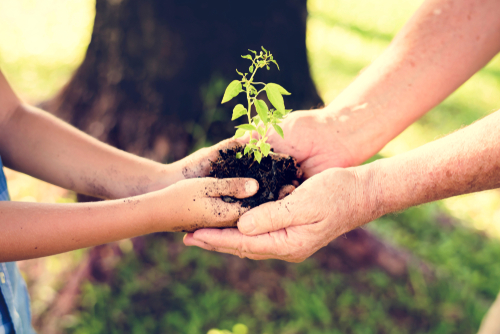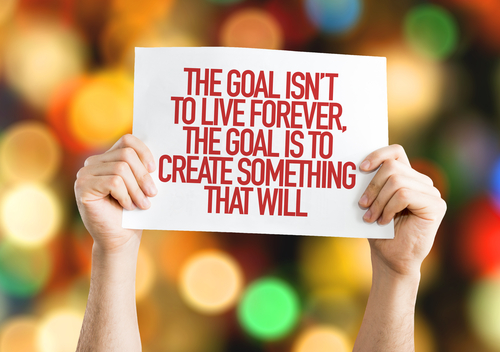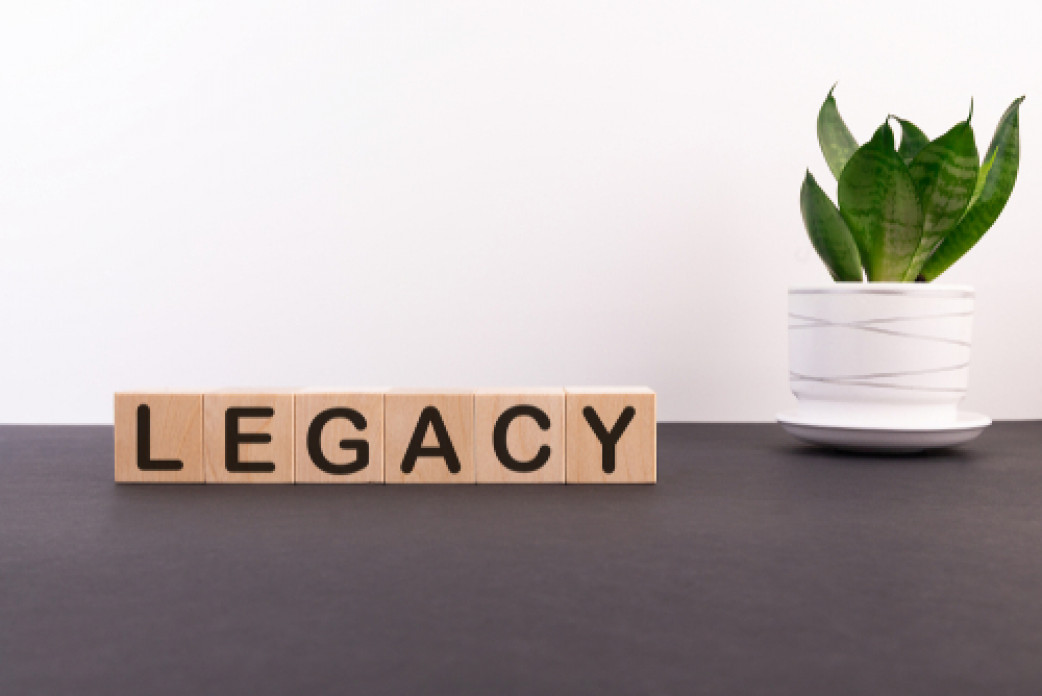What Does Leaving a Legacy Mean, Anyway?
While many define a legacy as a gift or inheritance that is handed down, there are elements of a legacy that don’t come in physical form. For example, some people consider a legacy to be real estate or money. But the most treasured forms of legacy are found in intangible gifts: values, memories, friendship, love, and respect.
A legacy captures your life and the lessons learned along the way, or it celebrates things that were most important to you, such as a cause or an interest. Having a lasting legacy means that you share these deeper meanings with friends, family, and posterity. Your legacy captures the insights you have in the present because of experiences in the past – then you can communicate these treasures to build the future.
Why Leave a Legacy?
Why does it matter if you leave a legacy after you are gone? Leaving a legacy means that you will continue making a contribution in future years, helping generations implement the beautiful life lessons you gained.
People want to know that their life has meaning. When you can see that your experience and perspective matter, then it helps you gain clarity on the things that are most important. These messages are hard-earned through years of life experiences, giving you priceless insights that you can share by passing on to children, grandchildren, family, and friends.
How to Leave a Legacy
How do you capture the thoughts, ideas, and emotions so you can communicate this information with the people you love? It takes work to leave a legacy, but it’s worth the effort because of the beautiful connections you make with the most important people in your life.
A legacy letter, also known as an ethical will, is a document that communicates experiences, values, and life lessons to your loved ones. These letters are usually short – only a few pages sharing the collection of your most valuable insights and knowledge.
What to Include in a Legacy Letter
It’s possible to create a legacy letter on your own. Consider these points that you might include in your written document:
- Personal history
- Life memories
- Accomplishments
- Career successes
- Religious views
- Personal values
- Dreams for the future
- Family recipes
There isn’t a right or wrong way to create a legacy to leave with your loved ones. The key is to try your best to capture the most important elements in your life in a format that you can share with others.
Legacy Projects to Start at Any Age
Tools to Help You Leave a Legacy
You might find it beneficial to use tools, services, or companies that help you document memories and life experiences. Sometimes it’s hard to find the self-motivation to create a legacy without a structured system or support. These resources can be invaluable to help you finish your legacy before it’s too late.
Tools to record and document your message might include:
- Pen and paper
- Word processing software and a laptop
- Audio recorder
- Video recording app
- Family history documentation
- Personal journals
- Digital photo albums

Physical vs. Digital Legacy
It often feels good to have something you can hold in your hands to gift to other people. For example, you might create a scrapbook or have several volumes of journals you kept over the years. Family members can display this physical documentation on the shelf and share it with others.
At the same time, a digital legacy is something that loved ones can keep forever. Having a digital version of your legacy means that you can distribute the online files to anyone you desire without worrying about the cost of physical items.
Digital storage can be as simple as a cloud-based photo album with your favorite pictures through the years. Or, you might have digital journals and life story documents. The best digital legacies include combining words and images, capturing the essence of a person’s life through imagery and communication.
Leaving a Legacy Through Charity
Another option to consider is how you might leave a legacy through a charitable organization. For example, you can leave real estate property or a financial contribution to an organization that is important to you.
This money pays it forward, helping the organization influence other people in a positive way. Depending on the donation, you might have a memorial of your name documented and displayed in the organization.
Helping a Loved One Leave a Legacy
Some people start creating their legacy in the earlier years of life. Other people reach the final stages and realize they don’t have much to offer in their legacy. However, it’s never too late to begin the process of leaving a legacy.
If your loved one hasn’t documented their life lessons or advice, then look for ways family members can assist in this final project.
Legacy Projects While the Person Is Still Alive
Create new memories together by helping a loved one create a legacy project while they are still alive. This process can be as simple or in-depth as you desire. For example, you might work together to organize and label photo albums. Or, sit as a scribe as the person tells stories from their life.
Not only will the family have a treasure to hold after the person is gone. But the experience of creating a legacy for a loved one is a great way to create memories together.
Honoring a Legacy After a Loved One is Gone
If your loved one didn’t leave a legacy, then you can create this legacy in their honor. First, find ways to document information about their life through a legacy project. Then, you can share the collection with friends and family who can also contribute.
Digital assets allow crowd contributions, where other people can upload photos and videos or type the memories they shared with the individual. These online collections are easy to send to anyone who shares a relationship with the person.

It’s Never Too Late to Create a Legacy
No matter your age, it is always the perfect time to start creating your legacy. If you are still in good health, then designing a legacy right now gives you the flexibility of time. Then, over the years, you can dial in the message that you want to leave with the world after you are gone.
Sometimes people feel the urgency to create a legacy when they are nearing the end of life. But, even if you only have a limited time, you can find a way to document the messages and values that are most important to share with your friends and family. And that is the true gift of your legacy, the one that will touch the hearts of those you love.
Join our community on Instagram and Facebook. We'd love to see you there.
Recommended Products
- Woodamore Share a Memory Cards — Beautiful 50-pack memory cards for celebrating the life of a loved one at memorials and gatherings.
- Skylight Digital Picture Frame — A touchscreen digital frame that lets family share photos by email — perfect for displaying a slideshow of cherished memories.
- 3D Innovation Crystal Photo — Custom-engraved 3D crystal photo block that beautifully preserves a cherished portrait.


-banner.png)





